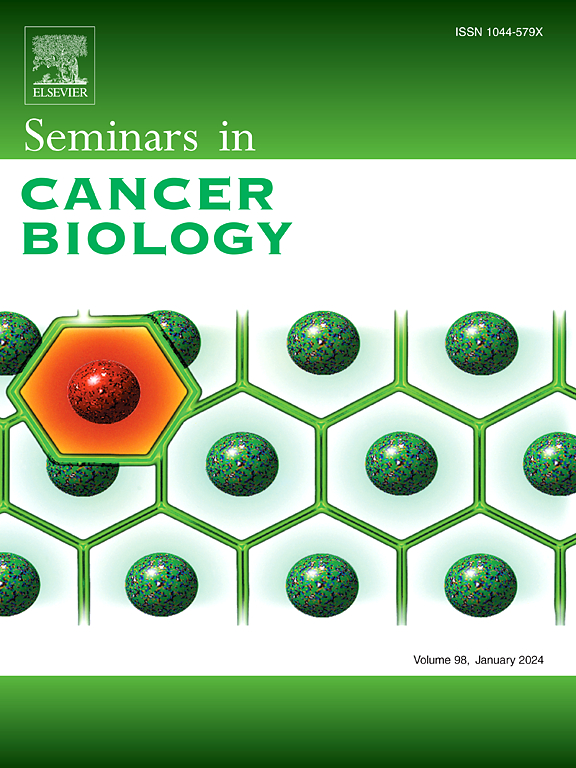Impact of obesity on postoperative complications in colorectal cancer surgery: A systematic review and meta-analysis
IF 12.1
1区 医学
Q1 ONCOLOGY
引用次数: 0
Abstract
Background
Obesity has been increasingly recognized as a factor that influences postoperative outcomes in colorectal cancer surgery. However, its impact on surgical complications, mortality, and oncological outcomes remains controversial. This systematic review and meta-analysis aimed to evaluate the association between obesity and postoperative complications in colorectal cancer surgery.
Methods
A comprehensive search was conducted in MEDLINE/PubMed, Scopus, and Embase, including studies evaluating body mass index (BMI) in relation to postoperative complications such as infections, anastomotic leakage, postoperative ileus, bleeding, reoperation, and mortality. Data synthesis involved a qualitative analysis of all eligible studies and a meta-analysis when applicable. The quality of the studies included was assessed using the Newcastle-Ottawa Scale, while the certainty of evidence was evaluated through the Grading of Recommendations, Assessment, Development and Evaluations (GRADE) approach.
Results
Twenty-nine studies were included in the qualitative analysis and 17 were eligible for the meta-analysis. Compared to BMI < 30 kg/m², patients with BMI ≥ 30 kg/m² showed significantly higher risk of any type of surgical site infection (OR=1.49; 95 % CI: 1.37–1.70; low certainty). No significant differences were found in mortality (OR=1.23; 95 % CI: 0.72–2.11; very low certainty), hemorrhage (OR=1.05; 95 % CI: 0.97–1.14; very low certainty), or gastrointestinal complications (OR=1.10; 95 % CI: 0.96–1.26; very low certainty).
Conclusion
Obesity significantly increases the risk of surgical site infections in colorectal cancer surgery. Although its impact on mortality and gastrointestinal complications remains unclear, implementing preoperative optimization protocols specifically aimed at obesity management could mitigate these surgical risks. The certainty of evidence ranges from low to very low, highlighting the need for high-quality prospective studies with standardized BMI criteria and surgical protocols.
肥胖对结直肠癌手术术后并发症的影响:系统回顾和荟萃分析。
背景:肥胖越来越被认为是影响结直肠癌手术后预后的一个因素。然而,其对手术并发症、死亡率和肿瘤预后的影响仍存在争议。本系统综述和荟萃分析旨在评估结直肠癌手术中肥胖与术后并发症之间的关系。方法:综合检索MEDLINE/PubMed、Scopus和Embase,纳入评价体重指数(BMI)与术后并发症(如感染、吻合口漏、术后肠梗阻、出血、再手术和死亡率)的研究。数据综合包括对所有符合条件的研究进行定性分析,并在适用时进行荟萃分析。纳入研究的质量使用纽卡斯尔-渥太华量表进行评估,而证据的确定性通过建议、评估、发展和评估分级(GRADE)方法进行评估。结果:29项研究纳入定性分析,17项研究符合meta分析。结论:肥胖显著增加结直肠癌手术部位感染的风险。尽管其对死亡率和胃肠道并发症的影响尚不清楚,但实施针对肥胖管理的术前优化方案可以减轻这些手术风险。证据的确定性范围从低到非常低,强调需要有标准化BMI标准和手术方案的高质量前瞻性研究。
本文章由计算机程序翻译,如有差异,请以英文原文为准。
求助全文
约1分钟内获得全文
求助全文
来源期刊

Seminars in cancer biology
医学-肿瘤学
CiteScore
26.80
自引率
4.10%
发文量
347
审稿时长
15.1 weeks
期刊介绍:
Seminars in Cancer Biology (YSCBI) is a specialized review journal that focuses on the field of molecular oncology. Its primary objective is to keep scientists up-to-date with the latest developments in this field.
The journal adopts a thematic approach, dedicating each issue to an important topic of interest to cancer biologists. These topics cover a range of research areas, including the underlying genetic and molecular causes of cellular transformation and cancer, as well as the molecular basis of potential therapies.
To ensure the highest quality and expertise, every issue is supervised by a guest editor or editors who are internationally recognized experts in the respective field. Each issue features approximately eight to twelve authoritative invited reviews that cover various aspects of the chosen subject area.
The ultimate goal of each issue of YSCBI is to offer a cohesive, easily comprehensible, and engaging overview of the selected topic. The journal strives to provide scientists with a coordinated and lively examination of the latest developments in the field of molecular oncology.
 求助内容:
求助内容: 应助结果提醒方式:
应助结果提醒方式:


